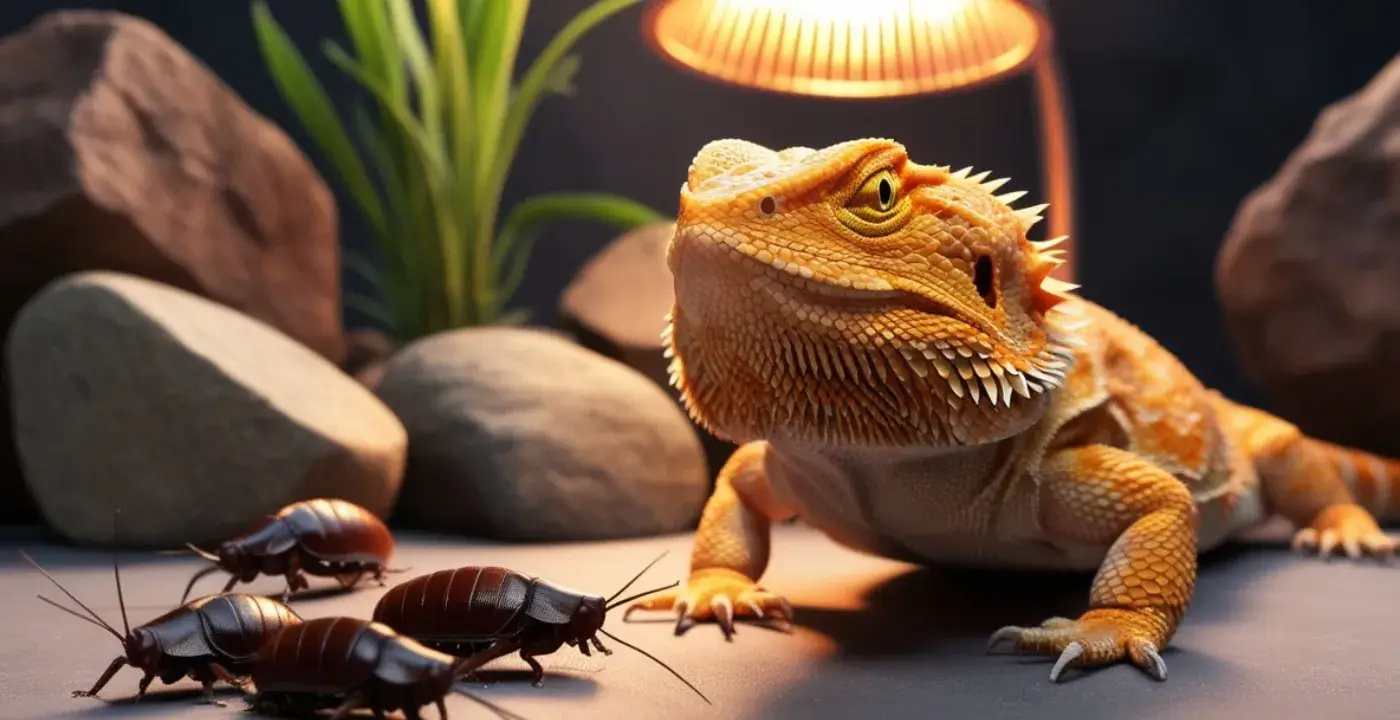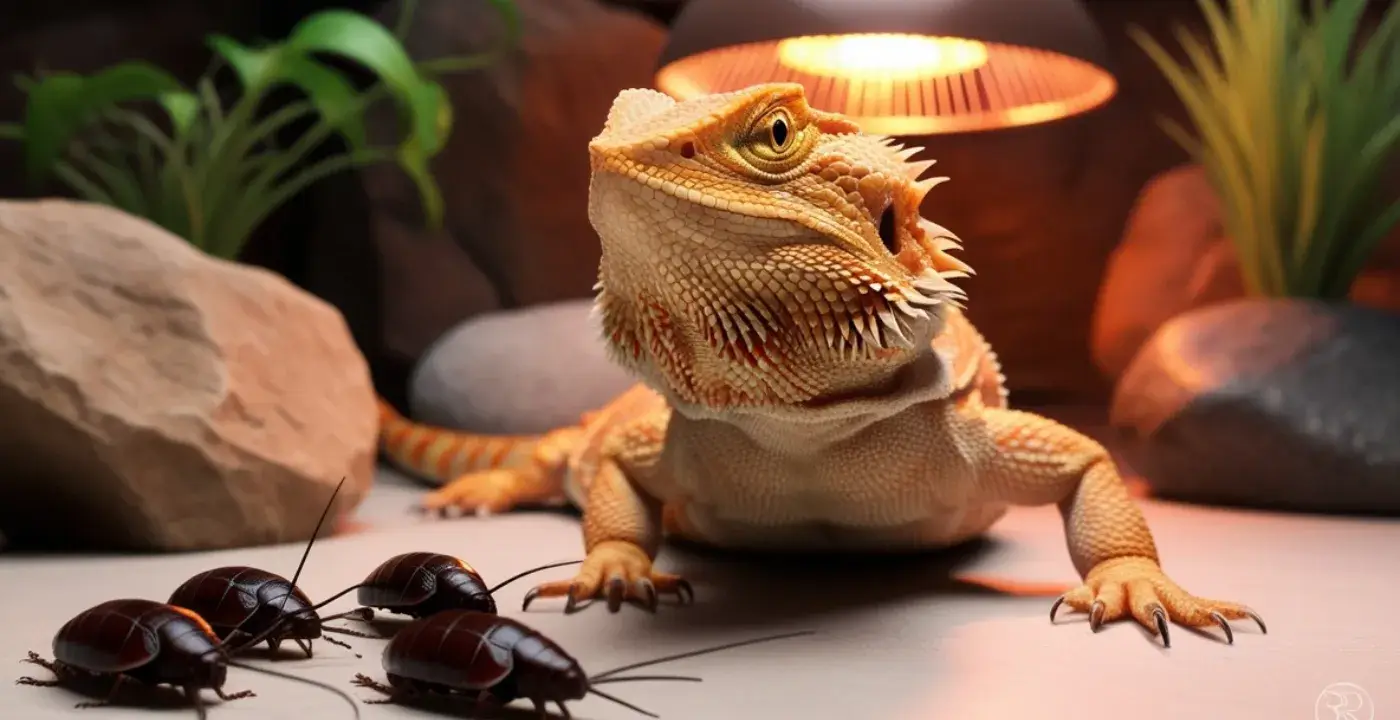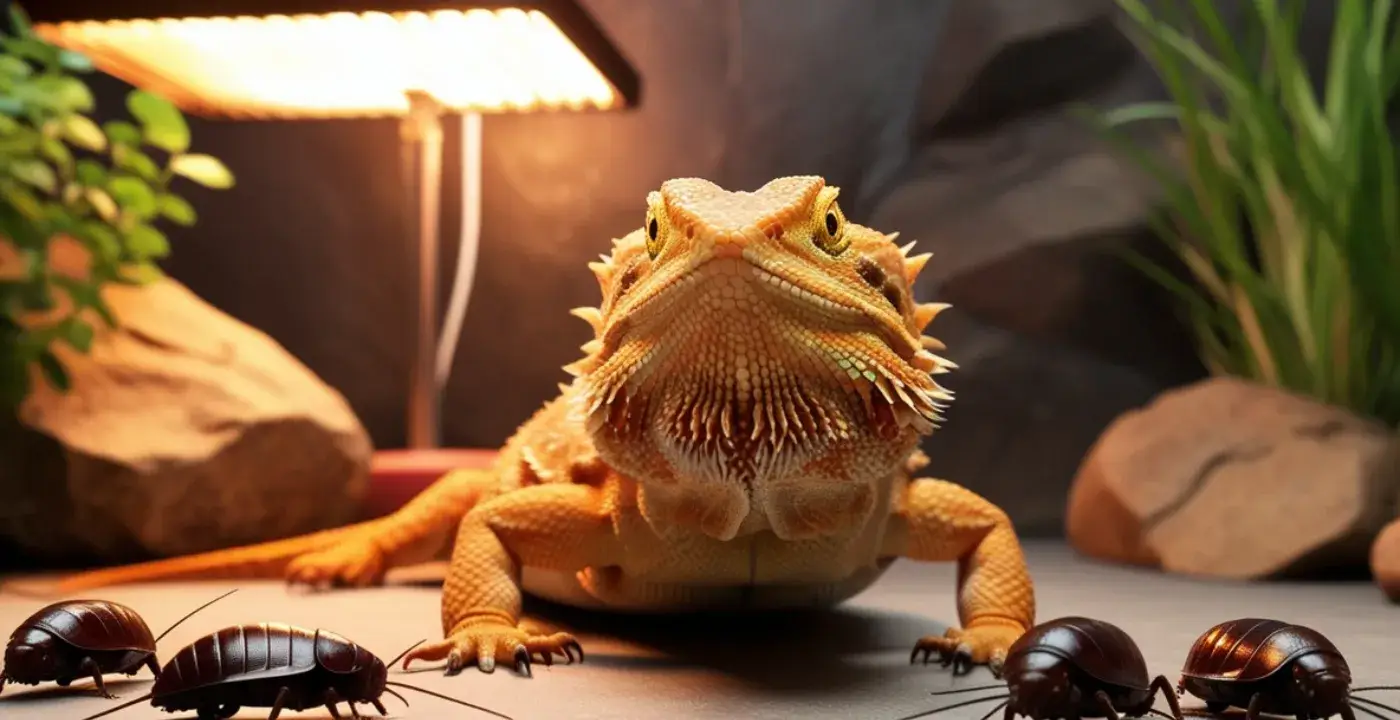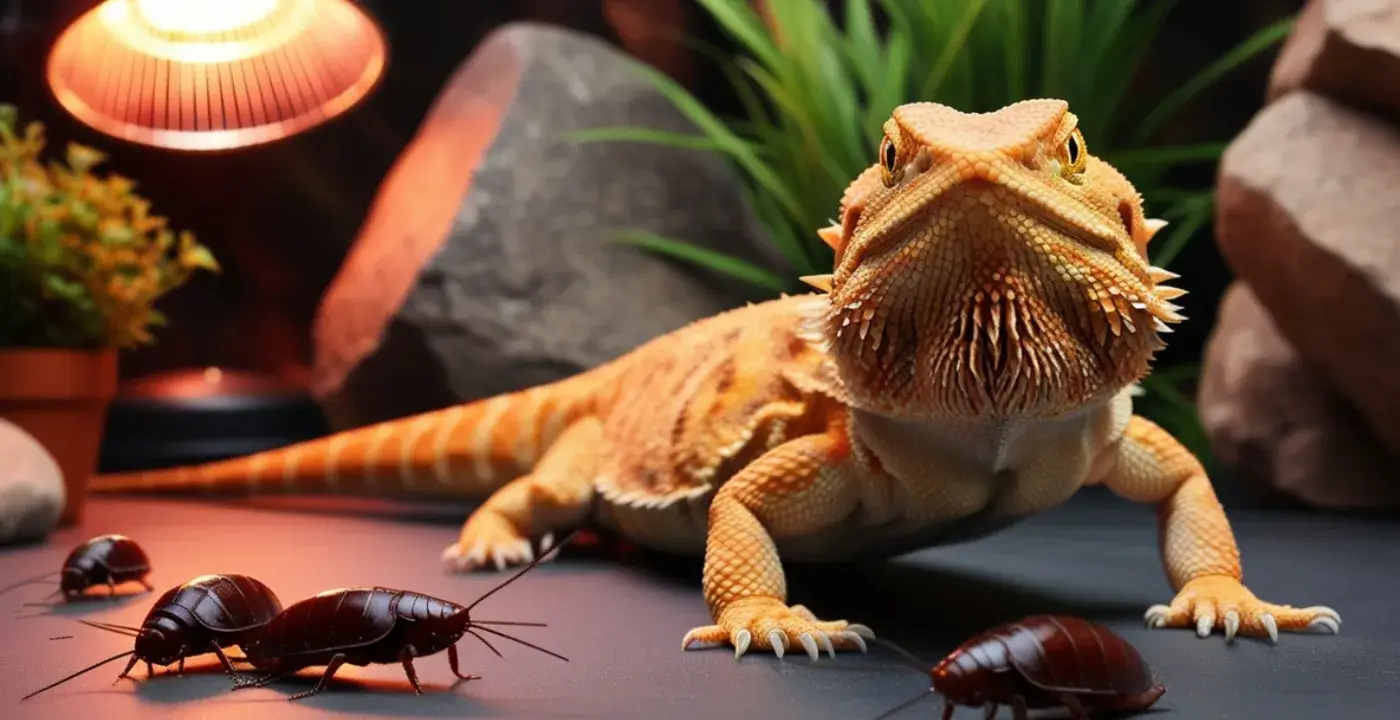When it comes to feeding your bearded dragon, variety and nutrition are key. But have you ever wondered, do bearded dragons eat Dubia roaches? The answer is a resounding yes! Dubia roaches are one of the most nutritious and popular feeder insects for bearded dragons, offering a host of benefits for your scaly friend.
In this comprehensive guide, we’ll explore everything you need to know about feeding Dubia roaches to your bearded dragon, from their nutritional value to how to incorporate them into your pet’s diet.
Why Dubia Roaches Are a Staple for Bearded Dragons

Bearded dragons are omnivorous reptiles, meaning they thrive on a balanced diet of insects, vegetables, and occasional fruits. Among the many feeder insects available, Dubia roaches stand out as a superior choice. But what makes them so special?
Nutritional Benefits of Dubia Roaches
Dubia roaches (Blaptica dubia) are packed with essential nutrients that support the health and growth of bearded dragons. Here’s a breakdown of their nutritional profile:
- High Protein Content: Dubia roaches contain around 28% protein, which is crucial for muscle development and overall growth.
- Low Fat: With only about 7% fat, they are a leaner option compared to other feeders like mealworms.
- Rich in Calcium: Calcium is vital for bone health and preventing metabolic bone disease, a common issue in reptiles.
- Balanced Phosphorus Ratio: Dubia roaches have an ideal calcium-to-phosphorus ratio (2:1), ensuring proper nutrient absorption.
Why Dubia Roaches Are Better Than Other Feeders
While crickets and mealworms are commonly used, Dubia roaches offer several advantages:
- Longer Lifespan: They live longer than crickets, reducing the need for frequent purchases.
- Quiet and Odorless: Unlike crickets, Dubia roaches don’t make noise or produce strong odors.
- Easier to Digest: Their soft exoskeleton makes them easier for bearded dragons to digest compared to harder-shelled insects.
How to Feed Dubia Roaches to Your Bearded Dragon

Feeding Dubia roaches to your bearded dragon is simple, but there are a few best practices to ensure your pet gets the most out of this nutritious food source.
Step-by-Step Feeding Guide
- Choose the Right Size: Select roaches that are no larger than the space between your bearded dragon’s eyes. This prevents choking and ensures easy digestion.
- Gut-Load the Roaches: Feed the roaches nutrient-rich foods like leafy greens, carrots, and commercial gut-load products 24-48 hours before offering them to your pet. This enhances their nutritional value.
- Dust with Calcium Powder: Lightly coat the roaches with a calcium supplement (without vitamin D3 if your dragon gets adequate UVB exposure) to boost their calcium content.
- Offer in a Feeding Dish or by Hand: Place the roaches in a shallow dish or use feeding tongs to prevent them from escaping. Some owners enjoy hand-feeding to bond with their pet.
- Monitor Your Dragon’s Intake: Younger bearded dragons require more protein, so they can eat Dubia roaches daily. Adults should have them 2-3 times a week as part of a balanced diet.
Common Mistakes to Avoid
- Overfeeding: While Dubia roaches are nutritious, overfeeding can lead to obesity. Stick to recommended portion sizes.
- Skipping Gut-Loading: Feeding roaches a poor diet reduces their nutritional value for your dragon.
- Ignoring Hydration: Ensure your bearded dragon has access to fresh water, as Dubia roaches have low moisture content.
Addressing Common Questions and Misconceptions
Are Dubia Roaches Safe for Bearded Dragons?
Yes, Dubia roaches are safe and highly beneficial for bearded dragons. They are non-toxic, easy to digest, and unlikely to carry parasites when sourced from reputable breeders.
Can Dubia Roaches Bite My Bearded Dragon?
Dubia roaches are not aggressive and rarely bite. Their soft exoskeleton makes them a safe choice for your pet.
Do Dubia Roaches Smell Bad?
Unlike crickets, Dubia roaches are virtually odorless when kept in clean conditions. Proper housing and regular cleaning of their enclosure will prevent any unpleasant smells.
Can I Breed Dubia Roaches at Home?
Absolutely! Breeding Dubia roaches is cost-effective and ensures a steady supply of feeders. They require a warm, humid environment and a diet of fruits, vegetables, and grains.
Expert Insights on Dubia Roaches and Bearded Dragons

Reptile veterinarians and breeders widely recommend Dubia roaches as a staple feeder for bearded dragons. According to Dr. Susan Horton, a renowned exotic animal veterinarian, “Dubia roaches are an excellent source of protein and calcium, making them a superior choice for reptiles like bearded dragons. Their balanced nutrient profile supports healthy growth and prevents common health issues.”
A study published in the Journal of Herpetological Medicine and Surgery also highlights the importance of calcium-rich feeders like Dubia roaches in preventing metabolic bone disease, a condition caused by calcium deficiency.
Tips for Buying and Storing Dubia Roaches
Choosing a Reputable Supplier
Always purchase Dubia roaches from trusted breeders or pet stores to ensure they are healthy and free from contaminants. Look for reviews and certifications to verify the supplier’s credibility.
Proper Storage and Care
- Housing: Keep Dubia roaches in a well-ventilated container with egg crates for hiding.
- Temperature: Maintain a temperature of 75-95°F (24-35°C) for optimal health and breeding.
- Diet: Provide fresh fruits, vegetables, and grains to keep the roaches nutritious for your bearded dragon.
Final Thoughts: Why Dubia Roaches Are a Game-Changer for Bearded Dragons
Dubia roaches are more than just a feeder insect—they are a powerhouse of nutrition that can significantly enhance your bearded dragon’s health and well-being. From their high protein and calcium content to their ease of digestion and low maintenance, they are a top choice for reptile owners.
By incorporating Dubia roaches into your bearded dragon’s diet, you’re not only providing a tasty treat but also ensuring your pet gets the essential nutrients it needs to thrive. Whether you’re a seasoned reptile enthusiast or a first-time bearded dragon owner, Dubia roaches are a reliable and beneficial addition to your feeding routine.
Call to Action: Have you tried feeding Dubia roaches to your bearded dragon? Share your experiences in the comments below! If you found this guide helpful, explore our other posts on reptile care and nutrition for more tips and insights. Your dragon’s health is worth it! Drguidez.

Mark Manson is an expert blogger specializing in Dubia Roaches. He shares practical care tips, breeding insights, and feeding advice to help enthusiasts and reptile owners thrive.

